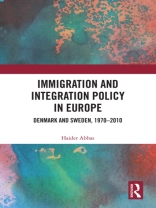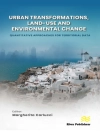This book analyzes contemporary changes in immigration and integration policy in the wake of populism and rise of right-wing parties across the world. It examines how, in the face of substantial migratory flows, rising security concerns regarding immigration, and a refugee crisis of unprecedented levels, member states of the European Union have responded by calling for restrictive immigration policies, border patrolling, and intensified integration programs. Focusing on Denmark and Sweden, the volume employs a unified theoretical framework to look at how internal political debates, institutional patterns, constitutional frameworks, and political competition are key to a systematic explanation of immigration and integration policy changes in Europe.
This volume will be of great interest to scholars and researchers of migration and diaspora studies, public policy, politics and international relations, sociology, and social anthropology, as well as government officials, think tanks, and policymakers.












